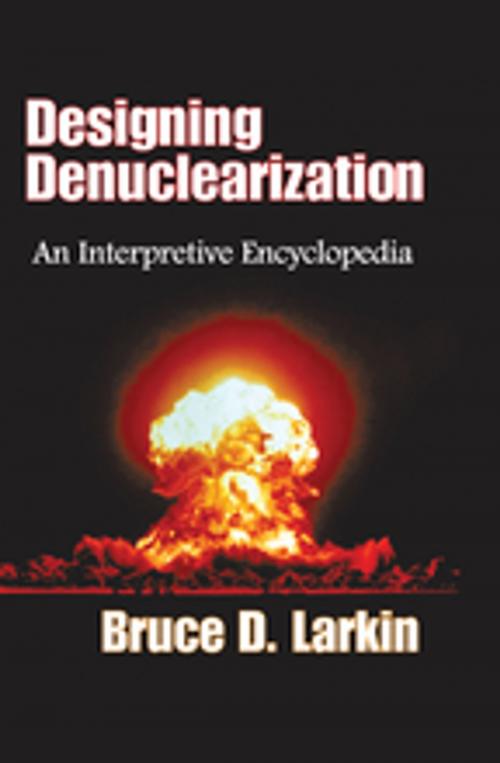Designing Denuclearization
An Interpretive Encyclopedia
Nonfiction, Social & Cultural Studies, Political Science, International, International Relations| Author: | Bruce Larkin | ISBN: | 9781351522601 |
| Publisher: | Taylor and Francis | Publication: | February 6, 2018 |
| Imprint: | Routledge | Language: | English |
| Author: | Bruce Larkin |
| ISBN: | 9781351522601 |
| Publisher: | Taylor and Francis |
| Publication: | February 6, 2018 |
| Imprint: | Routledge |
| Language: | English |
This work canvasses nuclear weapon abolition, proposals placed on the table since 1945 and the obstacles and issues which a realistic program for abolition confronts today. It has an ambitious purpose, to show that nuclear abolition can and should be placed on the public agenda.a The author terms it interpretive in that it incorporates his commentaries, never hiding his reasons and judgments. It is neither "just the facts" nor "all the facts." It is an encyclopedia in the original meaning of "a general course of instruction." He identifies himself with all who pursue the problem posed by nuclear weapons systematically and with seriousness of purpose, committed to self-instruction. In another sense, he writes, this work is a conversation with the Reader.
What is needed to abolish nuclear weapons? His starting-point is this: As long as nuclear weapons are stockpiled and deployed there is risk of their use, which would be catastrophic. Abolition, however, is inconceivable in the absence of a developed and articulated alternative to the nuclear status quo. Even with that, the politics of abolition, bringing the governments of the nuclear weapon states to believe that abolition is in their interest, is the sine qua non of achieving a world free of nuclear weapons.
Larkin's text is written for those, whether practitioners or citizens, interested in designing and bringing about denuclearization. Abolition cannot be achieved by political elites in the absence of broad concurrent public support. Governments, career policy officials and legislators have chosen to assume responsibility for the public agenda. They may be askedimust be asked,what they will do to bring about denuclearization.
This work canvasses nuclear weapon abolition, proposals placed on the table since 1945 and the obstacles and issues which a realistic program for abolition confronts today. It has an ambitious purpose, to show that nuclear abolition can and should be placed on the public agenda.a The author terms it interpretive in that it incorporates his commentaries, never hiding his reasons and judgments. It is neither "just the facts" nor "all the facts." It is an encyclopedia in the original meaning of "a general course of instruction." He identifies himself with all who pursue the problem posed by nuclear weapons systematically and with seriousness of purpose, committed to self-instruction. In another sense, he writes, this work is a conversation with the Reader.
What is needed to abolish nuclear weapons? His starting-point is this: As long as nuclear weapons are stockpiled and deployed there is risk of their use, which would be catastrophic. Abolition, however, is inconceivable in the absence of a developed and articulated alternative to the nuclear status quo. Even with that, the politics of abolition, bringing the governments of the nuclear weapon states to believe that abolition is in their interest, is the sine qua non of achieving a world free of nuclear weapons.
Larkin's text is written for those, whether practitioners or citizens, interested in designing and bringing about denuclearization. Abolition cannot be achieved by political elites in the absence of broad concurrent public support. Governments, career policy officials and legislators have chosen to assume responsibility for the public agenda. They may be askedimust be asked,what they will do to bring about denuclearization.















